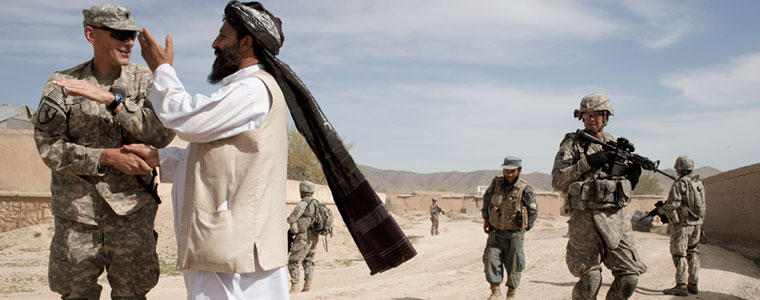The Taliban announced today that it would cancel reconciliation talks and close its office in Qatar as a result of widespread anger over the killing of 16 Afghan civilians at the hands of an American service member.

USIP's Omar Samad, a senior Afghanistan expert at USIP had this to say.
"On the surface, the Taliban suspension of Qatar-based talks with the US seems to be tactical and meant as a public relations exercise after the recent Quran burning and tragic Panjwai killing ordeals. While not completely shutting the door, it is also meant to extract concessions from the US on accelerating the Guantanamo prisoner release process, and also to reinforce the Taliban's political position in future phases of negotiations. But it could also have the potential to derail the reconciliation track for the foreseeable future."
And on President Karzai's request for American troops to be confined to major bases - and withdraw from smaller combat outposts like the one on which the American servicemember reportedly responsible for the killings lived:
"President Karza's request for an immediate NATO pullback to bases and faster transition to Afghan forces by 2013 – a year ahead of schedule – could alter the exit strategy at work. While it puts added pressure on NATO to re-evaluate and accelerate the transition process to nascent Afghan forces, it also sends a political message to dissatisfied Afghans, following the recent Panjwai civilian rampage by a US soldier, as well as to the Taliban who just suspended talks with the US, and still insist on not seeking talks with Karza's side, that he can change end-game terms.
The immediate implication of such a request though is of an operational nature. If and when implemented, how would this retrenchment affect command and control, coordination, counter-insurgency, self-defence and the ability of replacing Afghan forces to do the job in a country with a complex and diverse set of on-the-ground conditions and threat levels?.



